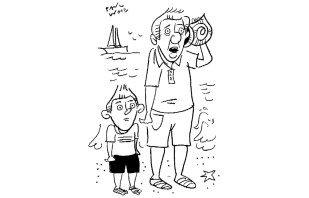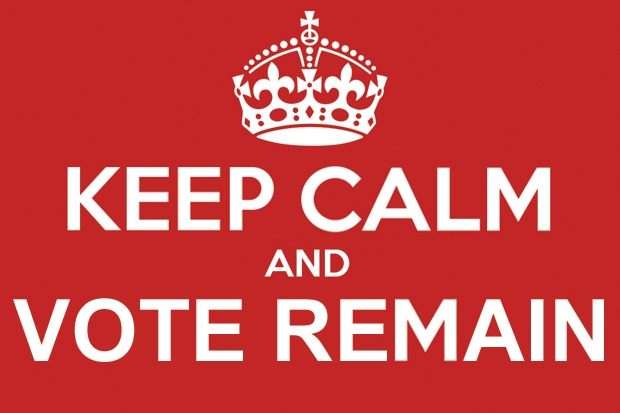1.A proxy, first, for our dislike of being told by government what to do. Think how the European Union, ‘Brussels’, ‘faceless bureaucrats’, and that generalised vision of insolent officialdom that enrages every Briton, is being made an easy stand-in for everything we hate about government, all government.
We resent regulation but older readers will remember we did have an awful lot of regulation before we joined the EU, entirely unprompted by Brussels. Most of the regulation that has ‘come from the EU’ only substitutes for the home-grown variety. Jacob Rees-Mogg MP pointed me accusingly to the green-man fire-escape sign at the exit to our school hall. He’s right. These signs are now standardised across the EU. But do we not want standardised signs that we’ll recognise in Spanish hotels? A bonfire of the regulations could indeed take place after we left the EU. But it would have to be followed by an orgy of new regulations to replace them.2. Which brings me to a resonant argument used by the Leave campaign: ‘But at least we’d be taking back the power to decide.’ Europe has become a proxy for people’s sense of powerlessness.
Ask yourself, though, who the ‘we’ are who would be ‘taking back control’. The ‘we’ used by Brexiteers is menacingly unspecific. Some of the ‘we’ want much less regulation, some want much more, some want different. The collective ‘we’ can only survive the first few yards of this journey — from now until 24 June. After any decision to leave, that sense of purpose would fragment. ‘Europe’ has soaked up for us a million gripes about the modern world: a proxy and convenient target for a national irritability which, were Europe to be removed, would not go away.3. Now for my third thought about Europe as a punchbag. The EU has become a proxy, too, for our worries about ourselves: a stand-in for failings closer to home.
Look at the British economy today. The problems? Continuing low productivity, an overdependence on consumer spending, sluggish manufacturing and exports, a skills shortage, welfare dependency, a shortage (whisper this) of young adults willing to do labouring jobs. People worry, often secretly, that we are getting a bit fat and idle as a nation. The NHS, too, seems to be struggling. We could turn and face up to these problems. Or we could blame Europe. It’s the EU’s fault that our exporters are not trying harder to export to the rest of the world; EU red tape is throttling our manufacturers (but not the Germans’); EU immigrants are clogging up the NHS; EU immigrants are ‘taking’ unskilled and semi-skilled work from our otherwise eager young citizens. Ah, European immigrants: themselves a proxy for all those immigrants (half the total) who have been coming from the Indian subcontinent and beyond. Leavers say we could have more of these latter without Europe, but do they mean it? Is it really the Polish plumber rather than the Bengali bride whom your average Leave voter wants to keep out? Hooray, we’ve left the EU: now (say Leave) we can have more immigrants with brown skins. As my colleague Hugo Rifkind writes, ‘Treasure these moments.’ I’m afraid immigration as an issue is fundamentally about race, but we’ve made EU migration a stand-in for those resentments.4. So much for the EU as proxy, the convenient butt of our boos. Now for a subject where I mean to tread delicately: the personnel, the individuals who, as a matter of fact, make up the Brexit team. Is it wrong to be put off a cause not so much by its argument as by some of the leaders and adherents it seems to have attracted? I believe the instinct to scrutinise the people as well as the case, is healthy.
I’ve had my say about Boris. Iain Duncan Smith does not seem to me to be behaving like a gentleman. I am unimpressed by Priti Patel. Kate Hoey is an eccentric. As for Nigel Farage and George Galloway, the less said the better. Nigel Lawson, with his crusade against those who warn about global warming, appears to have gone rather wild. Michael Gove is someone you’ll not hear a word against because we all like him, respect his intelligence and believe him to be a fundamentally good man. But when he grows eloquent I cannot quite banish from my nostrils the smell of burning witches. These people do not make a government. There are too many there that you’d want for your lively dinner party but would hesitate to leave in charge of your goldfish. 5. My fifth thought can be simply stated. I am concerned for Britain’s honour. There are too many forces in the world dedicated to not getting on with each other. Britain should be with those who are trying to. Our instincts in the world should be for conciliation, co-operation and goodwill. With all the goodwill in the world, I cannot hear in the Leave cause a predominating note of goodwill. I detect something rancid, something bitter, there.
6. A minor point for most, but not for dwellers in rural England like me. The EU has been good for farmers and good for the countryside. Leaving the CAP, the UK would probably have to revert to the pre-membership system of ‘deficiency payments’ to support farming. It was a costly, ill-controlled nightmare which the Treasury hated. Can you honestly see future governments ring-fencing farm spending as the EU effectively does? Farmers attract few votes these days.
I’ll leave you with a thought that doesn’t even have to be an argument for my side: no more, anyway, than the Queen was taking sides in the debate about Scottish independence when, leaving church, she told a wellwisher: ‘I hope people will think very carefully about the future.’
That was all she said; and that is what I hope too, for 23 June. This matters. It really matters. ‘Stay as we are’ is a single, knowable but unexciting option. ‘Leave’ is a mystery door behind which lies a choice between many mystery doors. We’re being enjoined to choose Brexit — but which Brexit? This is not a decision to be taken in pique, or resentment, or passing anger. If you’re sure, honestly sure, then take the leap. But be sure. And if you’re not, stay with what you know.The Spectator Podcast
Christopher Meyer, James Forsyth and Isabel Hardman discuss the first 100 days of Brexit
Daniel Hannan responds
Over the many years that I have delighted in his writings, Matthew has always struck me as anti-Eurosceptic rather than pro-EU. Now, challenged to make a factual case for staying in, he takes an unusual line. He doesn’t try to claim that the EU is a successful project: he is too honest for that. Rather, he falls back on amateur psychology. Euroscepticism is not a rational response to the failures of Brussels, he says, but a kind of displacement activity, a way of working out our complexes. Its exponents are ungentlemanly, eccentric, unimpressive. We’re closet racists, and our language is bitter and rancid. He and I must be following different debates. Leavers put up with a great deal of name-calling, and not just from columnists. The Prime Minister has suggested that we’re indifferent to peace, sympathetic to Putin and happy to put a bomb under the economy. While a few Eurosceptics are doubtless disagreeable — it could hardly be otherwise, with around half the country on the Leave side — our general case remains cheerful and optimistic. Britain is a bustling, innovative, generous country, perfectly capable of living under its own laws while co-operating with allies on every continent, including Europe. Is that really such a radical concept?| Will Britain vote to leave the EU? Can the Tories survive the aftermath? Join James Forsyth, Isabel Hardman and Fraser Nelson to discuss at a subscriber-only event at the Royal Institution, Mayfair, on Monday 20 June. Tickets are on sale now. Not a subscriber? Click here to join us, from just £1 a week. |








Comments